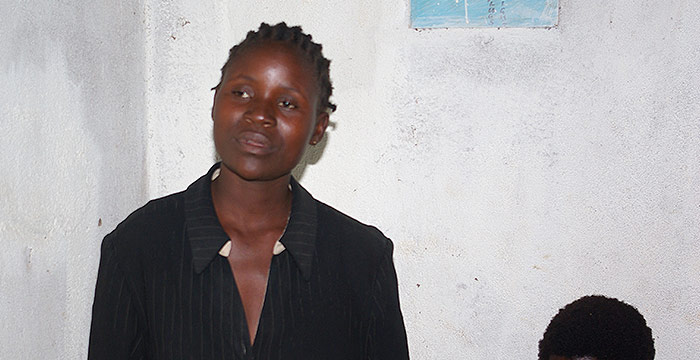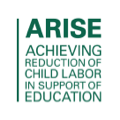
Malawi, Africa
Community training
REFLECTING on gender inequality
ARISE implements the REFLECT method to teach literacy to adults in the context of community development. It encourages participants not just to learn literacy and numeracy, but also how to identify and address community development issues. Each ARISE community has a REFLECT circle.
During REFLECT Circles, community members are encouraged to discuss and address the structural causes of child labor among smallholder farmers. Local assessments are used by facilitators during their sessions. One of the issues often raised is gender inequity.
Eluby Masitala joined the REFLECT circle in her village of Chikanda, Malawi, in September 2013. She says she initially joined as a pastime, but on her first day the facilitator introduced a session on gender equality and how families can plan and work together to improve their livelihoods. According to Eluby, after she and her husband ventured into tobacco farming in 2005, her husband used to chase her away following the sale of the tobacco, so that he could spend money on alcohol and other women.
‘During the tobacco-growing season we could work together and he was a nice man but that all changed when it came time to sell the tobacco. He would chase me out the house, and our children would not attend school. Quite often they would go to work in other people’s farms. Ours was a desperate family’, she recalls. ‘I paid a lot of attention to the discussions – they were reflecting much of my personal experiences at home’, she said.
From her fellow circle participants, Eluby learned how she could approach her husband and discuss improving their family’s livelihood. It was apparent to Eluby that she needed to invite her husband to attend the next REFLECT session. Her husband participated in the next session, which continued on the theme of gender equality and household planning. ‘After the session, we reviewed our problems together and made a plan for our livelihood conditions. My husband is now a completely changed person’, says Eluby.
They planned to build a house, buy a bicycle, and ensure that they could support the education of their children. ‘I am proud to say that we have achieved what we wanted. Now we want to buy an oxcart and a plough to help us in our farming. We are now a happy family and a role model for others.’
Esawo Pemba, ARISE Community Activist for Chikanda Village, acknowledged that gender inequality and gender-based violence are some of the structural causes of child labor. Quite often children are from households that don’t or can’t provide adequate support for their education. He says, ‘The REFLECT circle provides a good avenue for community members to discuss and find solutions to socio-economic issues that promote child labor in our area. We are seeing credible changes at household and community level… Some of our community members are supporting their children to go school more than before, and all this is proving important in addressing child labor.’




